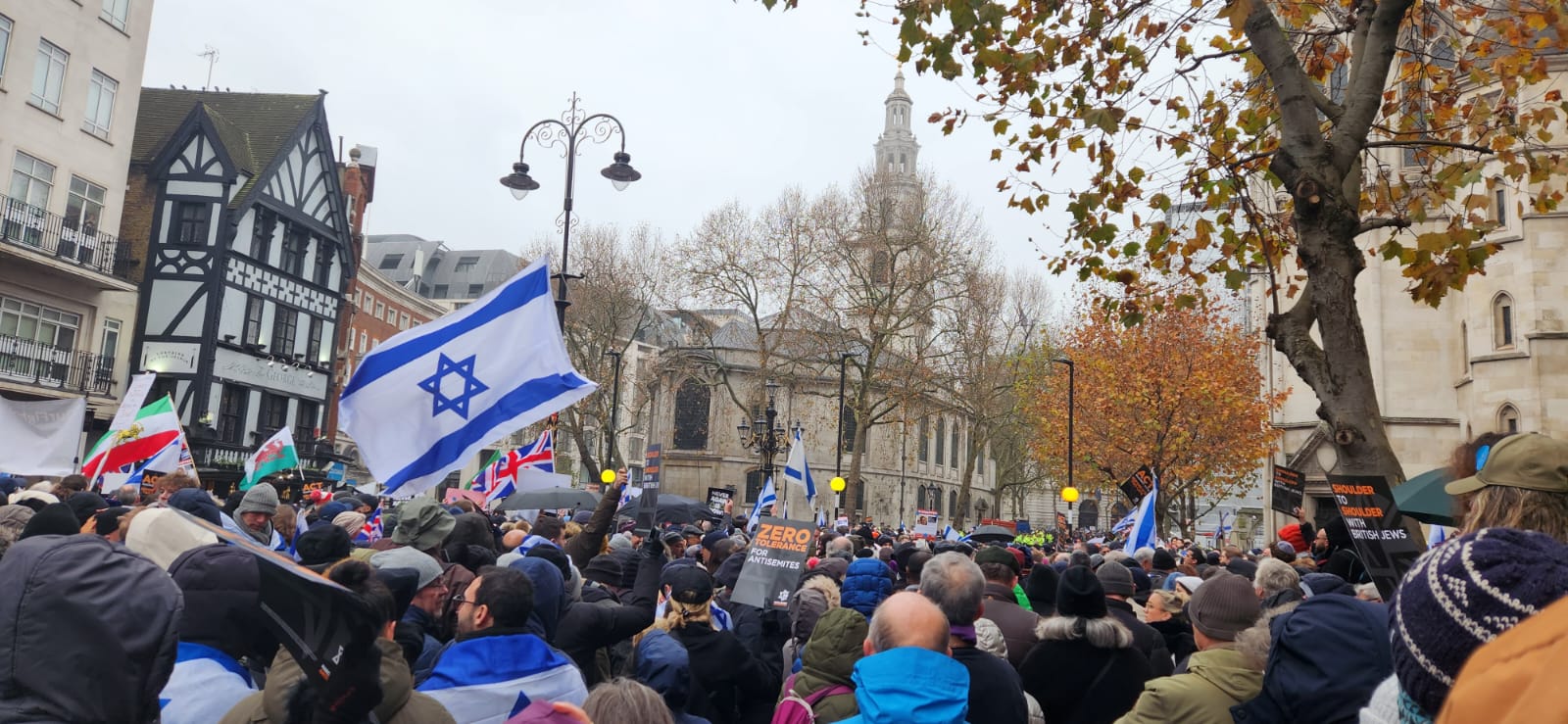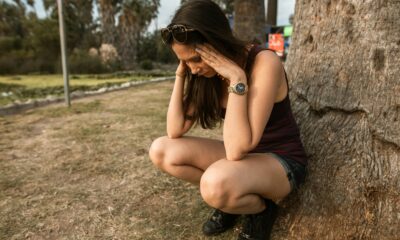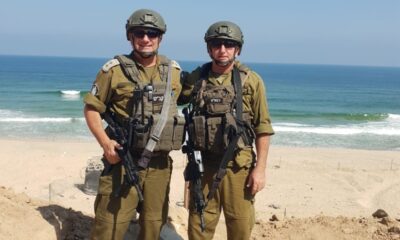
World

Shofar summons UK masses against antisemitism
About 100 000 people came together in the heart of London on Sunday, 26 November, in a March Against Antisemitism. Not even the cold and rain could keep them away.
The crowd, consisting of Jews and gentiles, met outside the Royal Courts of Justice in the heart of the city to raise their voices against growing antisemitism, not just in Britain, but globally since the 7 October attack.
Stephen Silverman, who helped to organise the march, emphasised that tolerance, inclusion, and kindness were the core tenets of the event. The event realised these intentions, from the placards by many non-Jewish groups showing support for Jews to the peaceful nature of the march itself.
Liane, a 38-year-old South African living in London, said that she had been apprehensive about attending the march due to the growing number of antisemitic incidents in the city, including the tearing down of hostage posters and violent episodes at recent protests. Still, she was glad that she decided to go. “As we got into the city and I saw the crowds, I felt quite emotional, as I had never been part of something like this before, and to see so many Jewish people was quite amazing. The vibe in the crowd was palatable, and everyone was calm but also full of energy as they chanted, ‘Bring Them Home!’ You could feel how everyone knew how important this march was.”
The march was opened by a blast from the shofar, and the crowd, led by Chief Rabbi Sir Ephraim Mirvis, marched along the Embankment and Whitehall to Parliament Square. It concluded with a rally in which the chief rabbi addressed the crowd in the shadow of Westminster Abbey and the Houses of Parliament. In his speech, he recalled the Battle of Cable Street in 1936, in which police and antifascists clashed with Oswald Mosley’s British Union of Fascists at its fourth-anniversary demonstration. This incident occurred in the East End, an area with a then-substantial Jewish population.
Sunday’s march has been called the biggest march against antisemitism in London since Cable Street 87 years ago, Mirvis said. He went on to speak about the upcoming parsha, which focuses on Esau’s plot to murder his twin brother, Jacob. Like Jacob, Jewish people just want to live in peace with others in spite of what they have experienced, he said. He concluded his speech with the lyrics of Israeli composer Nurit Hirsh’s song, Oseh Shalom.
Ira Kapp, a South African Jew who has been living on London for more than four decades, said it was the historical aspect that stuck out for him. “We showed the world, we showed England how dynamic a people we can be. All demographics came together with no misbehaviour, being sure to thank the Metropolitan Police, and yearning for peace. I was incredibly proud to arrive at the tube station and wait for three trains to pass before there was space to get on because of the sheer volume of people travelling to the March Against Antisemitism. There was an amazing feeling of togetherness. Since 7 October, the United Kingdom Jewish community has been crying out to stand together, shoulder to shoulder, against antisemitism. Attending the march means that I’m part of history and that all those who came will tell their children and grandchildren about this great gathering of British Jewry.”
Immigration Minister Robert Jenrick acknowledged how Jewish people might not have felt welcome in central London since 7 October. “We’ve witnessed mass criminality, including the glorification of terrorism, support for banned terrorist organisations such as Hamas, and incitement to racial or religious hatred against Jews. The sad truth is that Jews don’t feel safe in our capital city,” he said. He declared his support for Israel, and expressed the hope that Hamas would be defeated in the ongoing conflict as this would benefit the world, not just Israel.
Among the famous figures who attended the march were former Prime Minister Boris Johnson and his family; television presenter Rachel Riley; comedian and author David Baddiel; and actor Eddie Marsan. Shadow science and technology minister Peter Kyle apologised on behalf of the Labour Party for its antisemitic attitudes in the past, and championed change in the party under the leadership of Sir Keir Starmer.
One notorious figure who tried to attend the march was the far-right anti-Islam activist and English Defence League (EDL) founder Tommy Robinson, whose real name is Stephen Christopher Yaxley-Lennon. He had been informed he wouldn’t be welcome to attend as police and organisers didn’t want a far-right presence at the event. The police blocked him when he tried to join the march, and he insisted that he was a journalist who needed to attend for work. Robinson continued to protest against the police, which caused them to pepper spray and arrest him. The EDL leader was charged with a criminal offence, and released on bail under the condition that he wouldn’t enter London or participate in any protests. Robinson is scheduled to appear in court on 22 January 2024 in connection with this charge.
Besides this and another arrest, the March Against Antisemitism occurred without incident. It was a peaceful demonstration by people of all ages, races, backgrounds, and religions in a common cause against antisemitism and in the hope of Hamas releasing all its hostages.










